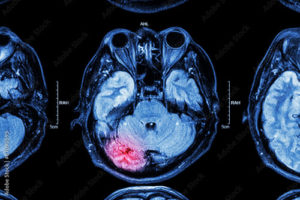
Sleep apnea, a common sleeping disorder that involves repeated breathing interruptions, can leave you feeling tired, groggy, and irritable during the day. However, sleep apnea can also impact more than just your quality of rest. New research has revealed that untreated sleep apnea can result in significant brain damage. Keep reading to discover how sleep apnea impacts your brain health and how sleep apnea therapy can help.
Sleep Apnea and Memory Loss
Sleep apnea can negatively affect both short-term and long-term memory. A common symptom of sleep apnea is reduced short-term recall. Due to the lack of restorative sleep, you may have trouble remembering events that took place over the last several days. In addition, sleep is usually an important time in which the brain consolidates short-term memories and converts them into long-term ones. However, research suggests that people with sleep apnea have trouble incorporating and categorizing their experiences, resulting in impaired memory formation and general forgetfulness.
Sleep Apnea and Brain Tissue Damage
Beyond memory problems, sleep apnea can also cause physical, measurable brain damage by starving your brain of oxygen. A recent study published in Sleep Journal found significant reductions in gray matter in certain areas of the brains of sleep apnea patients. The principal investigator of the study stated that sleep apnea could be responsible for decreased cognitive function. In addition, a separate sleep apnea study from the University of California-Los Angeles (UCLA) found structural changes to white matter in the brain, especially in areas that regulate mood, memory, and blood pressure.
How Can Your Dentist Help?
Although the impact of sleep apnea on brain health can seem scary, professional treatment can help! According to the American Academy of Sleep Medicine, studies on people with significant brain damage due to sleep apnea found that sleep apnea therapy improves gray matter after only three months and completely restores white matter after a year.
If you are experiencing sleep apnea, your dentist may be able to alleviate your symptoms with one of the following types of sleep apnea therapy:
- CPAP Machine – A device that continuously pumps air through a facemask worn at night. While effective, many patients find CPAP therapy noisy and uncomfortable.
- Oral Appliance Therapy – For mild to moderate sleep apnea cases, your dentist can fit you with a custom oral device that keeps your airway safely open while you sleep.
- Jaw Surgery – Surgical treatment can provide relief for severe cases of sleep apnea. Jaw surgery repositions the upper and lower jaw in order to increase the size of the airway.
If you are affected by sleep apnea, contact your dentist today to protect your brain health and reclaim a good night’s sleep.
About the Author
After graduating with his dentistry degree, Dr. Jeff Lee completed a four-year residency in oral and maxillofacial surgery at the Ohio State University. The skilled oral surgeon regularly performs jaw surgery to help patients overcome severe sleep apnea. To learn more about sleep apnea therapy, visit the Muskingum Valley Oral Surgery website or call 740-236-9392.
